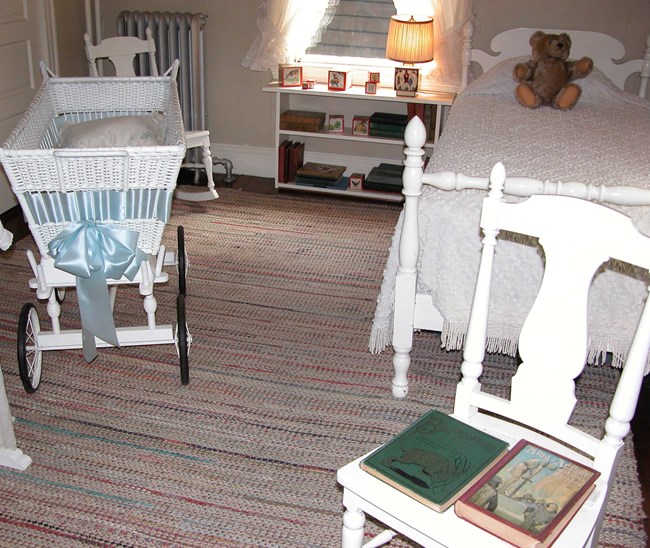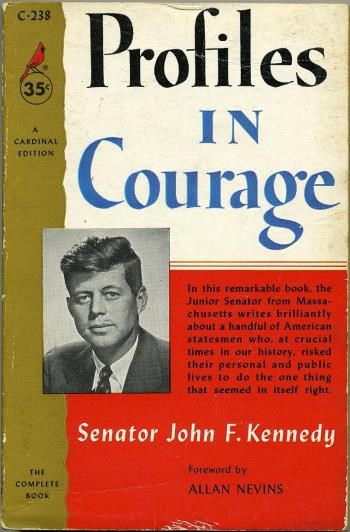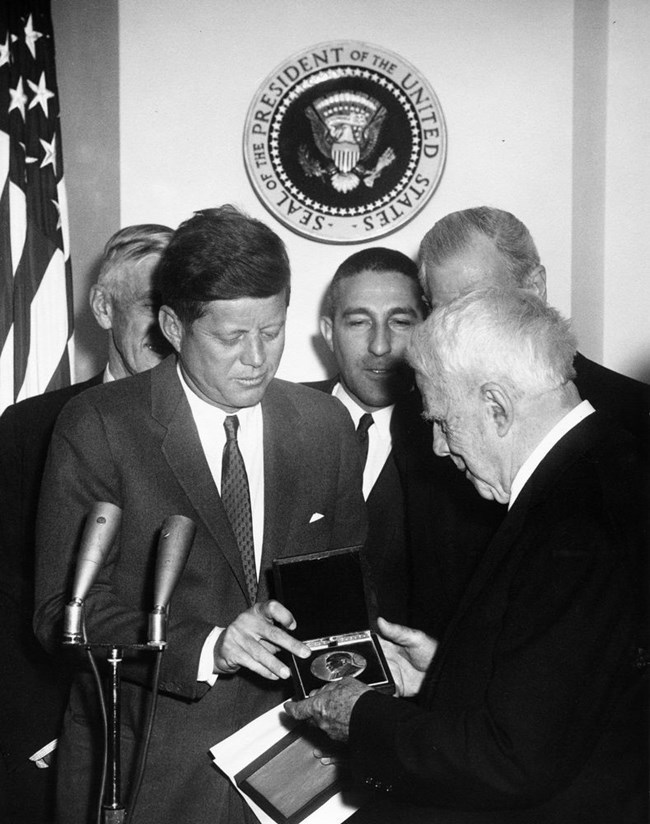Last updated: February 10, 2025
Article
John F. Kennedy: The Power of the Written Word

John F. Kennedy Presidential Library and Museum.
"He read in the strangest way . . . He'd read walking, he'd read at the table, at meals, he'd read after dinner, he'd read in the bathtub . . . He really read all the times you don't think you have time to read. . . He was always reading—practically while driving a car."
-Jacqueline Bouvier Kennedy

John Fitzgerald Kennedy National Historic Site.
Early Love for Reading
John “Jack” Fitzgerald Kennedy was a voracious reader throughout his life. Jack’s mother, Rose Kennedy, instilled in him an early love of reading by expecting all of her children to read books from a list of recommendations she had carefully curated. She later noted that Jack was the only one that read all the books on the list. Although Jack seemed to always have a natural love for reading, Mrs. Kennedy later commented that she believed it was Jack’s personal health struggles that served as a catalyst for his desire to read.Throughout his life, Jack suffered from poor physical health and had to deal with many ailments and illnesses. This was primarily due to what would later be diagnosed as Addison’s Disease, a disease that affects the adrenal glands. This weakened his immune system and made him more prone to illness.
Books provided Jack an escape from the bed he was so often confined to as a child. Two of Jack’s favorite books, Billy Whiskers Kids, a story about an adventurous and mischievous goat, and King Arthur and the His Knights of the Round Table, a tale of chivalry and heroism, are among those which Mrs. Kennedy chose to display in the birthplace home nursery when recreating the space.
Through these books and many others, Jack learned just how powerful the written word can be; how it can excite, entertain, provide comfort and solace, and open doors to new worlds. Once Jack began reading, there was no turning back and it became a lifelong passion.

John F. Kennedy Presidential Library and Museum.
Why England Slept
Jack was always naturally curious. The summer after his first year at Harvard, in 1937, Jack and his best friend, Kirk LeMoyne “Lem” Billings traveled around Europe. They visited a number of countries including France, the Netherlands, Italy, and Germany. Throughout the trip, Jack was intrigued by the people of these countries, their experiences, and their thoughts on the pressing topics of the time.When Jack’s father, Joseph P. Kennedy Sr., served as Ambassador to Great Britain from 1938 to 1940, Jack returned to Europe. He resumed his travels, and, through his father’s connections, even had the opportunity to meet with European leaders. Through these experiences and his study of world affairs, Jack began to develop his own thoughts and ideas on complex issues, particularly while living and traveling through countries on the cusp of war. He thoroughly researched his curiosities, approaching topics from every angle before forming an opinion.
For his 1940 senior year thesis at Harvard, Jack returned to the familiar issue of war that he had been grappling with for so long. In his thesis, Jack explained why he believed Great Britain had been so slow to build up its defense armaments. He argued that it was this hesitation that placed Great Britain in a vulnerable position to Germany’s growing power. Jack viewed his thesis as a cautionary tale for the United States as the country considered its own next steps in the tumultuous conflict underway. Allured by the desire of becoming an author, he published his thesis as a book titled Why England Slept later that same year, and it became a bestseller.

John F. Kennedy Presidential Library and Museum.
Profiles in Courage
Even after Jack entered the political arena and devoted his efforts to public service, his mind never rested and his natural curiosity predisposed him to be engaged in a constant quest for knowledge. In order to aid him in gathering information, from 1954 through 1955 Jack took a speed reading course. By the end of the course, he was able to read 1,200 words per minute.Similar to his childhood experiences, health issues throughout his adulthood provided an opening for Jack to continue to engage with literature. While he was recuperating from two back surgeries in 1954, the then senator reflected on politics and pondered what made a remarkable politican. Inspired by the examples of the lives of his political heroes, he recorded these thoughts by working on a second book.
As this idea expanded, Jack reached out to others for assistance to help put the book together. With the assistance of his wife, Jacqueline Bouvier Kennedy, and his Senate aide and research associate, Ted Sorensen, Jack created a work that focused on eight U.S. Senators who took principled stands, despite the great political and personal risks they faced. The final product was a book titled Profiles in Courage. Published in 1955, the book won the Pulitzer Prize in biography in 1957.

John F. Kennedy Presidential Library and Museum.
Presidency and Literary Legacy
From the outset of his presidency, as Jack became an internationally recognized figure as President John F. Kennedy, he showed his commitment to not only literature, but to the arts as a whole.For his presidential inaguration in January 1961, Kennedy became the first president to have a poet perform during the ceremony when he invited poet Robert Frost to take part in the day’s official proceedings. Frost had originally planned on reciting his poem, “Dedication,” which he had written speicifcally for the occasion, but due to the glare and his failing eyesight, Frost had to scrap the poem and instead chose to recite “The Gift Outright,” a poem he had previously published and had committed to memory.
Frost was once again honored by the administration in 1962, earning the Congressional Gold Medal, bestowed upon him by President Kennedy. During their time in the White House, the Kennedys brought a new awareness and sense of appreciation and recognition to the arts as a whole on a national scale.
At the time of President Kennedy’s death in November 1963, he had published several articles and authored three books. His third book, A Nation of Immigrants, about the history of immigration in the United States, began as a shorter work during his time as a senator to combat rising xenophobia. It went on to be posthumously published in 1964.
Beyond his own written works, President Kennedy’s contemporary awards and institutions remain a testament to the impact of his writing and appreciation for the arts. The Profile in Courage Award, named for and inspired by the 1955 book, recognizes those who display courage as the then senator defined it: acting based on one’s conscience in pursuit of a larger vision, regardless of personal cost. The John F. Kennedy Center for the Performing Arts in Washington, D.C. carries out President Kennedy’s legacy by presenting arts performances from around the world and providing education and outreach programs and policies on the arts.
